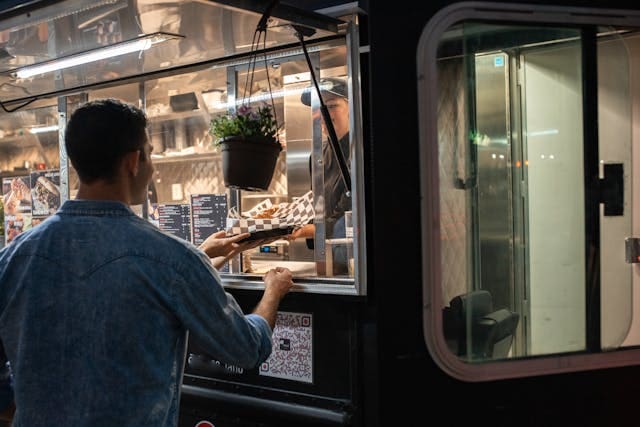Dreaming of creating your own street food business, but don’t know where to start? It’s easier than it may seem at first glance. No special training will be required from you. However, you need to understand that it can be problematic to acquire and implement the conceived idea without a financing food trailer. The following options are available for aspiring entrepreneurs:
- Bank loan. You will need to provide a specific, clear business plan, securities, and guarantees. It is important to convince the lender that your concept has every chance to find its place in the street trading market. If you are with bad credit, you will hardly be able to do this.
- Government finance a food trailer, a startup grant. Today, start-ups in business are supported by special agencies. By submitting a well-prepared business plan, you will significantly increase your chances of approval.
- Private investors actively promote concession trailer financing. As a rule, they do it in the following way: they invest in your company and become co-owners or provide a loan.
In addition to traditional financing methods, you can consider alternative options such as to buy a trailer in installments, leasing, crowdfunding or a start-up competition. The last option is a great way to attract investors to promote your idea.
Why a food trailer is a profitable business
The sale of street snacks has been an integral part of American life for almost two centuries. Unlike classic food establishments, such transports are mobile and allow customers to see the kitchen from the inside, increasing customer confidence. You can place them in any passable places, such as educational institutions, office blocks, beaches, parks and so on. You can realize that this is a lucrative business by considering the following factors:
- Lesser finance food trailer compared to traditional establishments. In addition to the cost of purchasing a transport (new), you will not have to pay for rent, order expensive furniture and so on.
- Cheap operation. You can sell on your own or hire one or two employees. A café, restaurant needs a cook, waiters, managers and other workers. If a breakdown occurs, it will be cheaper to repair the food track than to organize repairs in the premises.
- Minimizing losses. Any business, even a snack bar on wheels, can fail. In such a case, you can either change the concession, location, or sell your truck on the secondary market. In any case, the losses will be minimal for you.
- Wide opportunities. Mobile is the main advantage of such a business. Today, you sell hot dog, coffee, burger, gyros, pizza near the university campus, and tomorrow you take part in a city festival.
When selling food on the street, you can independently come up with new ideas for the development of in house. The options are very different: trading on the move so that drivers do not get out of the car, equipping a dining area in front of the transport, and so on.
The main costs of launching a food trailer
It is no secret that the cost of running any business exceeds the scope of the initial start-up fund. Therefore, when making a business plan to finance a food truck, it is recommended to take into account the following costs:
- trailers (purchase new, custom builder made to order);
- equipment;
- permits, licenses;
- consultations of specialists (accountant, lawyer, and so on);
- purchase of products;
- consumables;
- gasoline, propane;
- insurance;
- parking.
And, of course, do not underestimate the influence of marketing on the development of your business. It is recommended to come up with the original design of your trailer, advertising to attract customers.
Why financing is a key moment to start
If you are just starting to explore this market, you have probably realized that food trailer financing near me is an essential element. Finding concession is important to ensure profitability in the long run. To accurately assess profitability, you need to consider:
- location;
- start-up costs;
- permits and licenses;
- operating costs;
- equipment costs;
- repair costs;
- profit margin.
Starting a business and keeping it running smoothly will require discipline, diligence and, of course, good financial decisions.
The New Jersey Digest is a new jersey magazine that has chronicled daily life in the Garden State for over 10 years.
- Staffhttps://thedigestonline.com/author/thedigeststaff/
- Staffhttps://thedigestonline.com/author/thedigeststaff/
- Staffhttps://thedigestonline.com/author/thedigeststaff/
- Staffhttps://thedigestonline.com/author/thedigeststaff/


